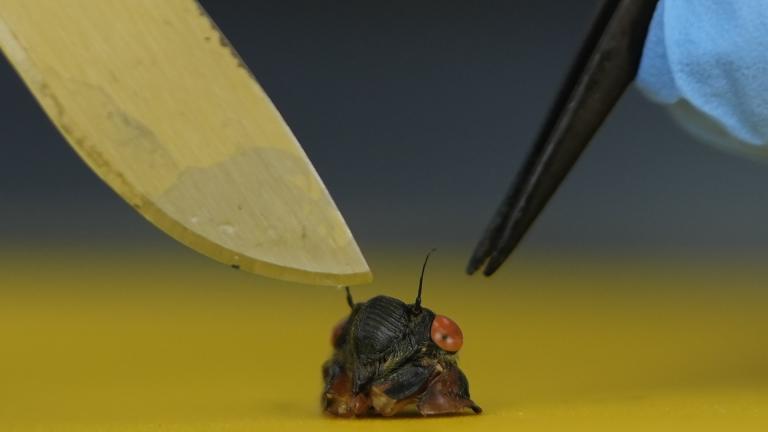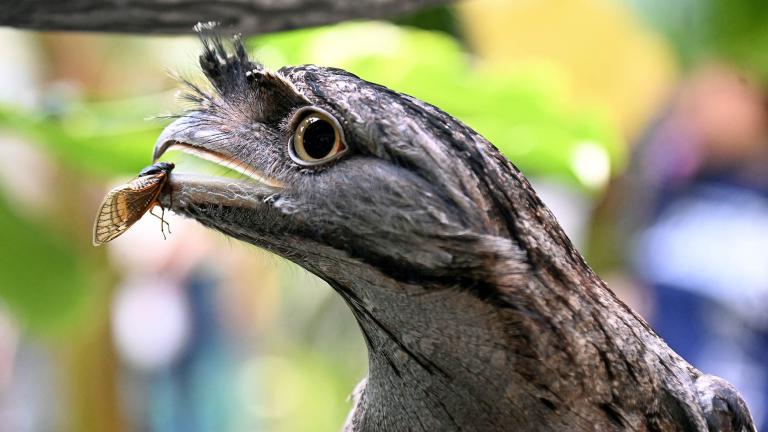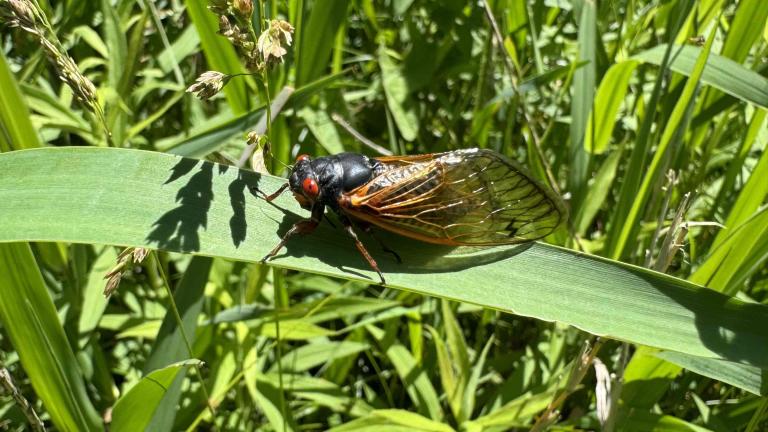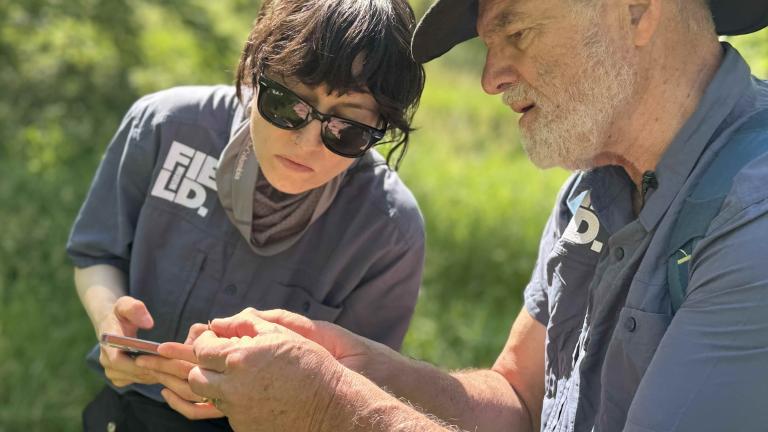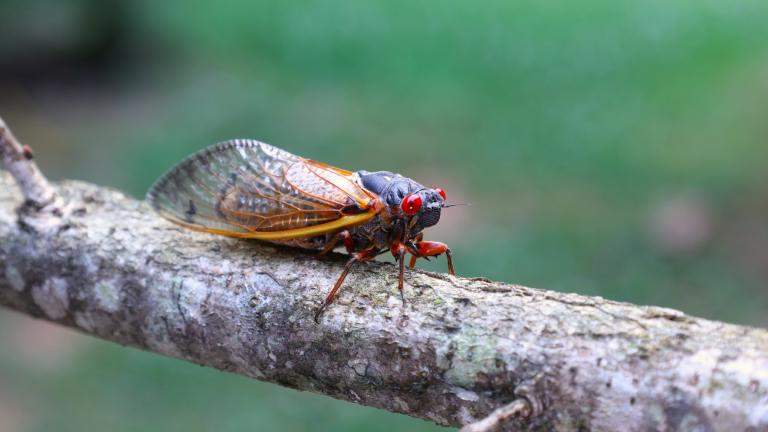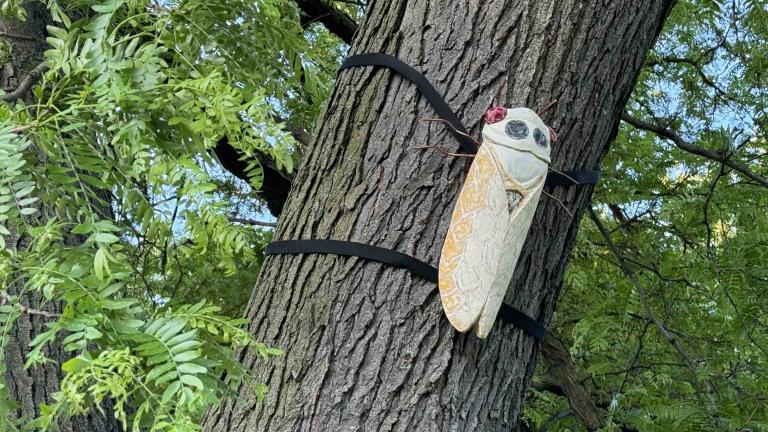The legacy of Monty and Rose lives on at Montrose Beach, where the pair’s son, Imani, is now a father of four himself, plover monitors have announced.
Imani and his mate Searocket have been on the nest for weeks, taking turns incubating their clutch of four eggs, which is surrounded by a protective enclosure to ward off potential predators. Three of the chicks hatched on Sunday and the fourth made an appearance Monday.
“It is so wonderful to have tiny chicks once more on the beach at Montrose,” Tamima Itani, lead plover monitor, told WTTW News via email.
Imani hatched at Montrose in 2021 — the last of Monty and Rose’s broods — and has returned to the beach every summer since, but this is the first year he’s been joined by a female. Captive-reared Searocket was released at Montrose in summer 2023 with the hopes that she too would find her way back to the beach.
“The experiment worked!” the Chicago Park District declared in a statement. “Searocket returned to mate with Imani, and to start their new brood.”
Piping plovers are endangered in the Great Lakes, largely due to loss of habitat. Sleeping Bear Dunes in Michigan is the bird’s current breeding stronghold and wildlife agencies across the Great Lakes have been working to increase the piping plover population elsewhere.
As part of this effort, captive-reared piping plover chicks were also released at Illinois Beach State Park in 2023, and two of them — Blaze and Pepper — returned in 2024. They successfully mated and the first of their chicks also recently hatched.
Plover chicks are what’s known as “precocial,” meaning they start running around and foraging on their own within hours of hatching. But the little ones aren't able to regulate their temperature, so they rely on their parents to keep them warm.
Because the chicks are so mobile, the Chicago Park District is asking beachgoers to remain vigilant when spending time at Montrose.
“We ask that patrons help keep the newly hatched chick, the nest and remaining eggs safe by respecting closed area boundaries, keeping dogs on leashes, and taking trash with them at the end of their beach visit,” the district said on Sunday after the first arrival cracked through its shell.
Park staff and volunteer plover monitors will continue to keep an eye on the young family of six in the coming weeks. They’ll be looking for any signs of ill health in the chicks, particularly lethargy, “although that’s not easy to tell, because they sleep a lot,” Itani said.
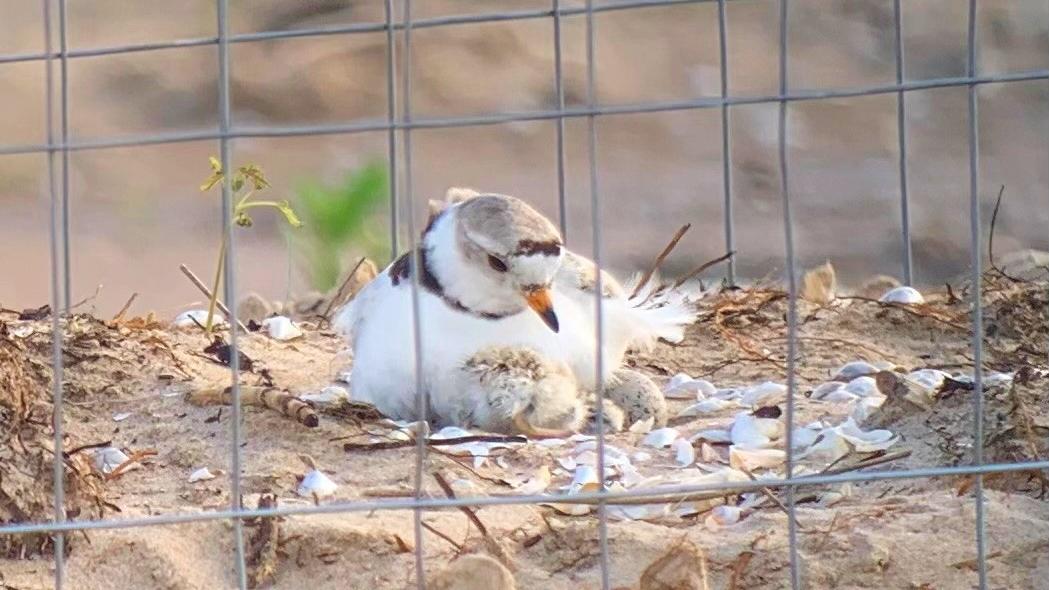 A newly hatched piping plover chick snuggles up to its parent at Montrose Beach, June 30, 2024. Parents Imani and Searocket are still incubating three more eggs. (Courtesy Chicago Piping Plover Watch)
A newly hatched piping plover chick snuggles up to its parent at Montrose Beach, June 30, 2024. Parents Imani and Searocket are still incubating three more eggs. (Courtesy Chicago Piping Plover Watch)
Chicks also face dangers from predators — mainly bigger birds — before they fledge and take wing on their first migration south.
Gulls, found in abundance along Chicago’s beaches, are among the most serious threats, capable of nabbing a young chick, killing and eating it, Itani said.
People can help the tiny plovers by keeping the beach clear of trash, which attracts gulls, and also by leaving the gulls in peace on the public beach. When the gulls are flushed from the public beach, they gather in greater numbers in the plovers’ protected area, according to Itani.
Raptors and herons are another menace. Imani and Searocket will be teaching the chicks how to flatten themselves in the sand when these predators appear, she said.
To safeguard their chicks, the new parents will relocate their brood from the nesting area to a less open spot on the beach as soon as all the little ones are able to make the move, Itani added.
This article originally published June 30 and has been updated with new information.
Contact Patty Wetli: @pattywetli | (773) 509-5623 | [email protected]

